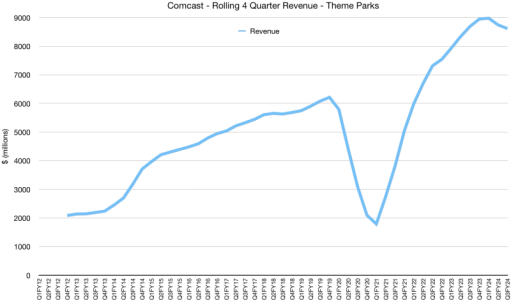Someone the other day asked about James Gorman's pedigree. This article has a bit of history.
https://www.americanbanker.com/list...med-morgan-stanley-after-the-financial-crisis
How James Gorman transformed Morgan Stanley after the financial crisis
By
Kevin Wack
October 28, 2024 - 7:42 PM
When James Gorman took over as CEO of Morgan Stanley, the investment banking giant was only 15 months removed from its near-death experience during the financial crisis.
In late September 2008, Morgan Stanley became a bank holding company in order to secure the funding it needed to stave off a market panic. The firm would also soon get a $10 billion capital infusion from the Troubled Asset Relief Program.
At the height of the crisis, the Australian-born Gorman was co-president of Morgan Stanley. He and then-CEO John Mack seized on the opportunity that the chaos presented, reaching out to then-Citigroup CEO Vikram ****** with an offer to form a joint venture with Citi's Smith Barney unit.
It was the first step in Gorman's plan to make wealth management a much bigger part of Morgan Stanley's business. He took over for Mack as CEO in January 2010, and then became chairman two years later.
After stepping down as CEO at the start of this year, Gorman plans to retire as chairman at the end of 2024. Ted Pick,
who succeeded Gorman as chief executive, will take over as chairman on Jan. 1, 2025.
The following day, Gorman will become chairman of The Walt Disney Company. Gorman is currently chairing the succession planning committee of Disney's board, and as board chairman he's expected to play a key role in finding a successor to CEO Robert Iger, whose contract expires in December 2026.
What follows is a look at key events during Gorman's long tenure atop the bank, including several moves that helped reshape Morgan Stanley's business.
Adding the Smith Barney business
After nearly being brought to its knees during the financial crisis, Citi was under pressure to shed noncore parts of its business when Gorman and Mack approached ****** about taking a majority stake in Smith Barney.
New York-based Morgan Stanley saw the venerable Smith Barney as offering a golden opportunity to extend its retail brokerage business.
Under a deal announced in January 2009, Morgan Stanley agreed to pay $2.7 billion for a 51% stake in the joint venture. The agreement also gave Morgan Stanley various purchase rights after the deal's third year.
Following a back-and-forth between Morgan Stanley and Citi over the value of the joint venture, the two companies agreed to a $13.5 billion valuation in 2012. That set the stage for Morgan Stanley to take full ownership the following year.
"In brokerage, bigger is better, so you would rather have 51% of a big business than 100% of a small one," Rob Kindler, the onetime global head of M&A for Morgan Stanley, said
in a 2015 interview. "Many of us were not sure whether we would buy out the remaining 49%. James was the one who was always certain that we would."
A two-notch downgrade by Moody’s
In June 2012, the ratings firm Moody's Investors Service downgraded Morgan Stanley and other investment banks. Its reasoning was that investment banks did not generally have access to low-cost customer deposits, instead relying heavily on the less reliable capital markets to fund their businesses.
Morgan Stanley got a two-notch downgrade from Moody's, but its stock price actually rose on the news because investors had feared a worse outcome.
Behind the scenes, Morgan Stanley executives had been working feverishly to dissuade Moody's from imposing a three-notch downgrade.
"It was hard work. The benefits of wealth management to our profitability weren't apparent yet," Morgan Stanley's treasurer at the time, Celeste Mellet Brown, said
in comments published on the company's website.
"They wanted proof that the systems and processes we'd put in place could protect the company. Meanwhile, we relayed to them the peril they would be putting us in if they downgraded us three notches. Ït would put us in extreme peril, like lighting the match."
If Gorman ever feared that Moody's would go ahead with the three-notch downgrade, or the consequences that would flow from that decision, he never showed it, Mellet Brown said.
"He was going to fight until the end," she said. "There were definitely people on the management team who basically were like, we're not going to be able to do this. James believed that we could do it, that we were a changed company."
More wealth management acquisitions
After adding Smith Barney, Morgan Stanley continued to expand in wealth management.
A few weeks before the COVID-19 pandemic erupted, the Wall Street bank agreed to acquire the online brokerage E*Trade for about $13 billion in stock. That deal, which closed in October 2020, not only yielded 5.2 million customer accounts, it also provided
$56 billion in lower-cost deposits.
Around the same time that the E*Trade acquisition closed, Morgan Stanley reached a $7 billion deal to acquire another wealth management firm, Eaton Vance.
The push for a bigger footprint in the wealth business has reshaped Morgan Stanley's balance sheet, lessening its reliance on investment banking revenues.
In 2022, when Morgan Stanley was managing $6.5 trillion of client investments, it set a goal of hitting the $10 trillion mark. By the end of the third quarter of 2024, that figure had surpassed $7.5 trillion.
Big loss from Archegos' demise
When the hedge fund Archegos Capital Management collapsed, Morgan Stanley was one of the banks that took a large hit.
In the first quarter of 2021, the bank recorded a $911 million charge related to Archegos, mostly because it sold stocks as part of a margin call related to Archegos' positions.
"I regard that decision as necessary and money well spent,"
Gorman said at the time.
Archegos founder Bill Hwang is awaiting sentencing after being found guilty earlier this year of
fraud and market manipulation.
Morgan Stanley is among the banks that have been embroiled in litigation tied to the collapse of Archegos.
Legal and regulatory issues
As Gorman prepares to exit the company, Morgan Stanley has been dealing with a host of legal and regulatory issues.
In August 2022, the company disclosed an agreement to pay $200 million to resolve investigations by the Securities and Exchange Commission and the Commodities Futures Trading Commission in connection with employees' use of unauthorized personal devices.
One year later, Morgan Stanley, JPMorgan Chase, Goldman Sachs and UBS
agreed to pay $499 million to settle a lawsuit that accused them of working together to squelch competition in the stock lending market.
Morgan Stanley is also among the banks that have recently been
facing questions from the SEC regarding the interest rates they pay on uninvested client cash held in advisory accounts.
There have also been regulatory issues recently involving the wealth business that Gorman worked to build up.
In 2022, the company's Smith Barney unit agreed to pay $35 million to settle SEC allegations that it failed to protect the personal identifying information of roughly 15 million customers.
And earlier this year,
the Wall Street Journal reported that the SEC, the Treasury Department and the Office of the Comptroller of the Currency were investigating Morgan Stanley's wealth management unit.
The probe was reportedly focusing on whether the bank did enough to investigate the identities of prospective clients and how they got their money.


